MS-ESS3-3
Apply scientific principles to design a method for monitoring and minimizing a human impact on the environment.
-
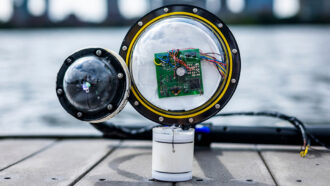 Tech
TechUnderwater cameras get a new power source — sound!
Needing no batteries, a new digital camera can run almost continuously to offer new, deeper insights into the ocean world.
-
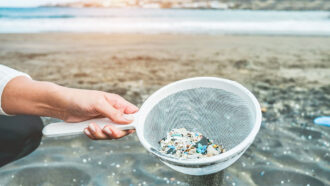 Environment
EnvironmentMicroplastic pollution aids viruses and prolongs their infectivity
The tiny plastic bits give these germs safe havens. That protection seems to increase as the plastic ages and breaks into ever smaller pieces.
-
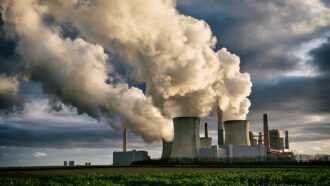 Earth
EarthFossil-fuel use is confusing some carbon-dating measurements
Carbon-14 dating of recent artifacts will soon give scientists confusing results. That’s another price society pays for its reliance on fossil fuels.
By Trisha Muro -
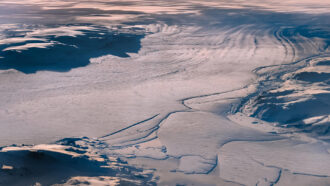 Climate
ClimateGreenland’s inland ice is melting far faster than anyone thought
Inland melting of the Northeast Greenland Ice Stream is accelerating — and may contribute far more to sea level rise than earlier estimates suggested.
By Nikk Ogasa -
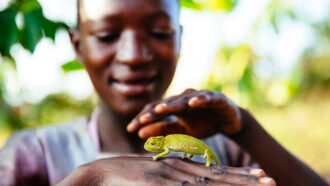 Animals
AnimalsStudy finds big drop in animal populations since 1970
But the same thing is not happening throughout the kingdom. For instance, more than half of vertebrate populations are stable or increasing.
-
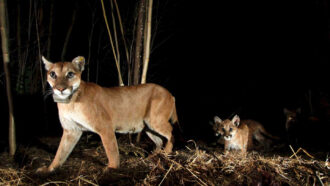 Animals
AnimalsCougars pushed out by wildfires took more risks around roads
After an intense burn in 2018 in California, big cats in the region crossed roads more often. That put them at higher risk of becoming roadkill.
-
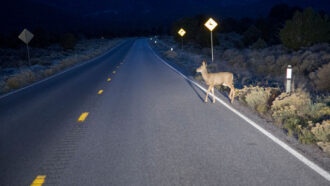 Animals
AnimalsCars hit more deer in the week after daylight saving time ends
In the days right after most Americans turn back the clock, vehicle crashes with deer increase by 16 percent, a new study shows.
-
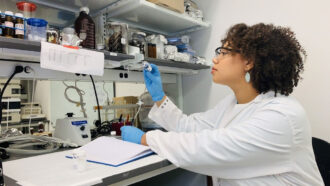 Environment
EnvironmentThis chemist uses online videos to teach about the perils of microplastics
Imari Walker says her journey as a scientist and science communicator lets her talk about and advocate for her passion.
-
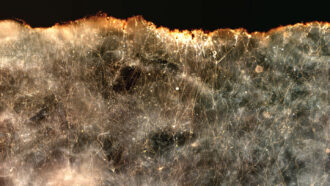 Environment
EnvironmentBacterial ‘living wires’ could help protect the seas and climate
Long, thin bacteria that conduct electricity may be able to help clean up oil spills and reduce emissions of methane, a powerful greenhouse gas.
By Nikk Ogasa -
 Agriculture
AgricultureLet’s learn about eating bugs
Eating more insects, rather than pork, beef or other kinds of meat, may be better for the planet.
-
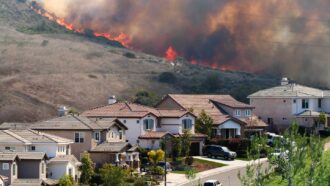 Earth
EarthAnalyze This: Wildfires are pumping more pollution into U.S. skies
Researchers wanted to study the health effects of wildfire smoke. But they realized they didn’t know where it was and how much exposure people had.
-
 Environment
Environment‘Forever’ chemicals show up in students’ school uniforms
Researchers found PFAS “forever chemicals” in kids’ school uniforms and other clothing. Studies have linked these compounds to health risks.